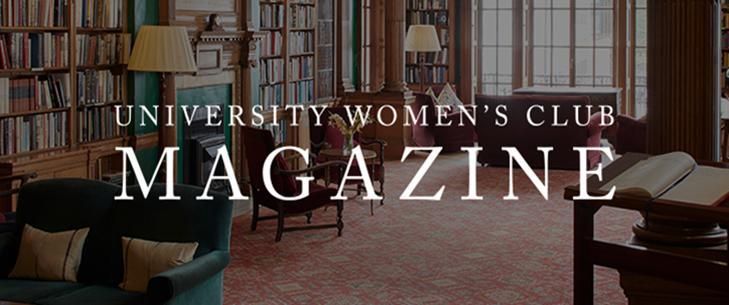

Message from the Chair of the GC
Dear Fellow Members,
It was my honour to be elected as Chairman of the 2025-2026 General Committee. It is a daunting task to follow Pauline Foster and Samiha Zahan as immediate past Chairmen. From 2016, Pauline, Samiha and Lucinda Orr had shown great commitment to the running of the Club, and stood down in June after a maximum nine-year term. They are replaced by Laura Cope, Alicia Lirola, Chaka Bachman and MariaLaura Adurno. Maria-Laura had already been serving as co-opted Joint Honorary Treasurer With four new faces on board, a quarter of the current GC are bringing new energy and ideas to the role.
A major task is improving the Club experience for Town members. To that end, the Bar under the stairs has been re-vamped to be more stylish and welcoming, and it will be staffed in the early evenings, making the area an easy place to socialize, whilst freeing up some of the lobby chairs for those who prefer to sit there The message is, come along, bring your friends for a drink and nibbles at the new-look Bar, or sit back and enjoy the Lobby area or Drawing Room. A separate initiative to improve the experience of younger members is being led by a Young Members’ Group, details of which are on page 9.
During the next couple of months, while the Library is closed, the ‘public’ areas of the Club will obviously be busier. But I am looking forward to seeing the results of the work being carried out in consideration of the Clubhouse’s history and listed status. Thank you to all members who have taken out debentures since October 2024; the refurbishments would not be possible without your contributions. There will be another call for debentures when we look to refurbish other public areas to compliment the ‘new’ Library.
I do hope to see some of you at a Club event in the near future, maybe at the re-opening of the Library.
Best regards, Lucy Wheatley

Issue Number 21: Autumn 2025
Including:
Update on the Library work
Launching the new Supper Club.
From the Archive: Profile of Dr Mary Scharlieb
Sweet Briar College, an UWC reciprocal Club
New Young Members’ Group
Some autumn dates for your diary.
Programmes for the Book Club, Film Club and Reading Group.
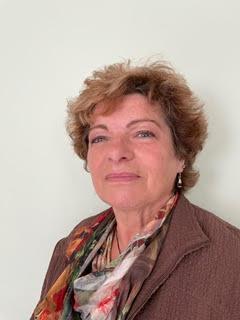
Message from the General Manager
Dear Members,
I trust that you have all had a wonderful summer!
This issue of the Magazine offers a great variety of reading about the Club, past, present and future. Pages 3-4 look back at some of the events we have hosted since Easter, while pages 18-19 look forward to some of the events we have planned for the months ahead. Pages 15-16 give an overview of our sparkling 2025 Concert Series. For news of our recently-formed Marketing Committee and the Young Members’ Group, see pages 12 and 10, while on page 14 is a reminder that we have launched a new Wednesday Supper Club. On page 7 you will find a fascinating profile of Dr Mary Scharlieb, who was one of our most remarkable members. Her connection to the Club came to light as part of the transcription project recording details of the women who became members in our early years. More details of this archival project can be found on page 6, including how to take part. Finally, don’t miss the profile on page 17 of Sweet Briar College in Virginia, one of our many reciprocal clubs in North America, and a kindred foundation in the push for women’s education.
With the Kitchen closed in August, we always take advantage of the lower footfall to get some muchneeded maintenance done to the house. The biggest of these projects has of course been the Library refurbishment which is now well under way. More details of the works can be found on pages 8-9; we are really excited about its progress towards completion. Other ongoing projects have included repairs to the Portico and Front Door, and the redecoration of the toilets and (at long last) the back staircase to the bedroom floors. Gradually, the rather worn and ‘tired’ areas of the Club are getting some much-needed attention. In addition to re-decorating, we have been busy upgrading much of the bedroom furniture, and, as mentioned in the Chair’s message, we have transformed the Bar area under the stairs into a fantastic welcoming social space, where members can sample our new cocktail menu and bar snacks.
While it’s sad to say goodbye to the warm weather we enjoyed during the summer, there is lots going on at the Club in the coming months to entice you in Tickets to all of our events can be booked via our Members’ website. If you don’t have access please get in touch with our Reception team and they will be able to assist you.
One event that we are especially looking forward to is the official Library re-launch talk & dinner that will be taking place in November. We are in the process of finalising the details, so please look out for further information in the coming weeks.
Looking forward to seeing you at the Club, Alex
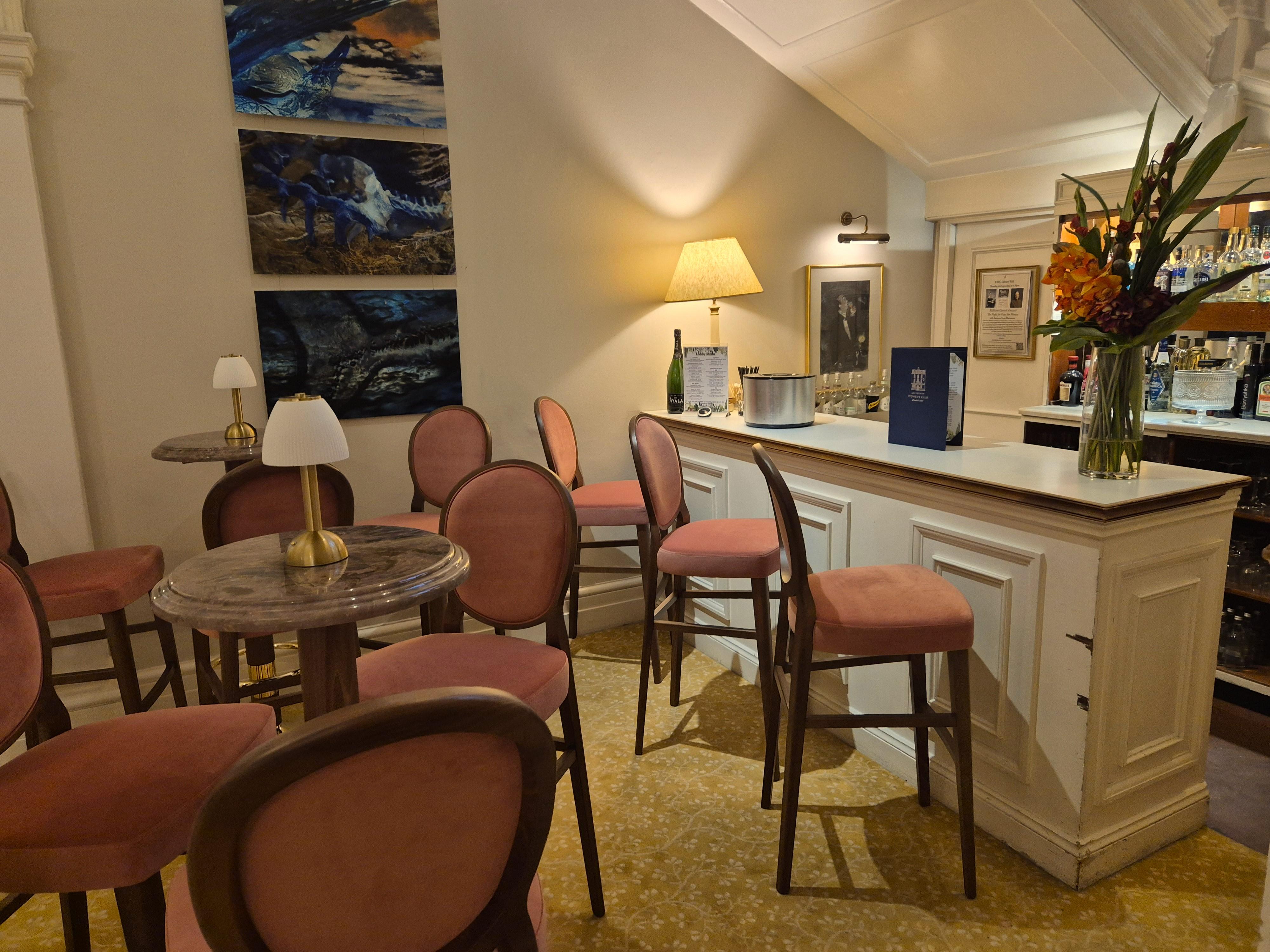
Highlights from the spring and summer event programme.
This year has blessed us with beautiful weather, long evenings, and a multitude of reasons to gather at the Club for themed dining, fine wines, conversation, and music. For Library talks, we welcomed experts from around the world, and also from the ranks of our own members. Here are glimpses of some of the memorable occasions that brightened the season.
Beyond the Call – Library Talk with the NMA
Last year we had the honour of welcoming the Duchess of Edinburgh in her role as Patron of the Nursing Memorial Appeal (NMA). The NMA commemorates the Voluntary Aid Detachment nurses and professional nurses, who gave their lives during the two World Wars, and today continues its legacy by providing bursaries to support trainee nurses. In April, we were delighted to welcome the NMA back for a live presentation of Beyond the Call for our members— a moving history of the VAD told through letters, bulletins, poems, and diaries of the time.
Spring Afternoon Tea
In May, we enjoyed a spring-themed Afternoon Tea in the Drawing Room. Members and their guests enjoyed a tempting selection of sweet and savoury delicacies, and a choice of fine teas, while Siobhan O’Higgins played a repertoire of piano music This event has truly become a Club favourite, and is especially popular with members who visit the Club at the weekend. A special Autumn Afternoon Tea will be served on Saturday, October 4th but, don’t forget that our classic afternoon tea is always available at the Clubhouse.
UWC Lady Russell Women’s History Salon – A Feast of Our Own
Inspired by the elegant salons once hosted at 2 Audley Square by Flora Russell, this much-loved gathering celebrated its first anniversary in May with a special screening of the 1987 classic Babette’s Feast, followed by a dinner menu inspired by the film. The Lady Russell Women’s History Salon, led by Camille Stallings, continues to flourish thanks to her expert knowledge and passion for women’s history.
UWC Concert Series – Music for a Summer’s Evening
The University Women’s Club is enriched by many talented and supportive members. Among them is Eleanor Meynell, who dedicates time and energy to organise the UWC Concert Series a programme that welcomes distinguished guests from the music world alongside emerging talents. In July, we enjoyed an exceptional performance from the Birce Kayhan Trio of the Purcell School of Music, joined by the school’s director of music, Paul Hoskins.
UWC Summer Soirée
A warm summer evening on the Terrace brought members together in a relaxed setting to enjoy cocktails, nibbles, and conversation. The soirée was a wonderful opportunity to welcome new members into the UWC community.
Summer Party – Midnight in Paris
What an evening! A night of Parisian glamour unfolded with elegant music from the jazz age, classic cocktails, and French-inspired cuisine. The celebrations concluded with a showing of the Academy Award–winning film Midnight in Paris with the Drawing Room beautifully transformed into a private cinema for the occasion.
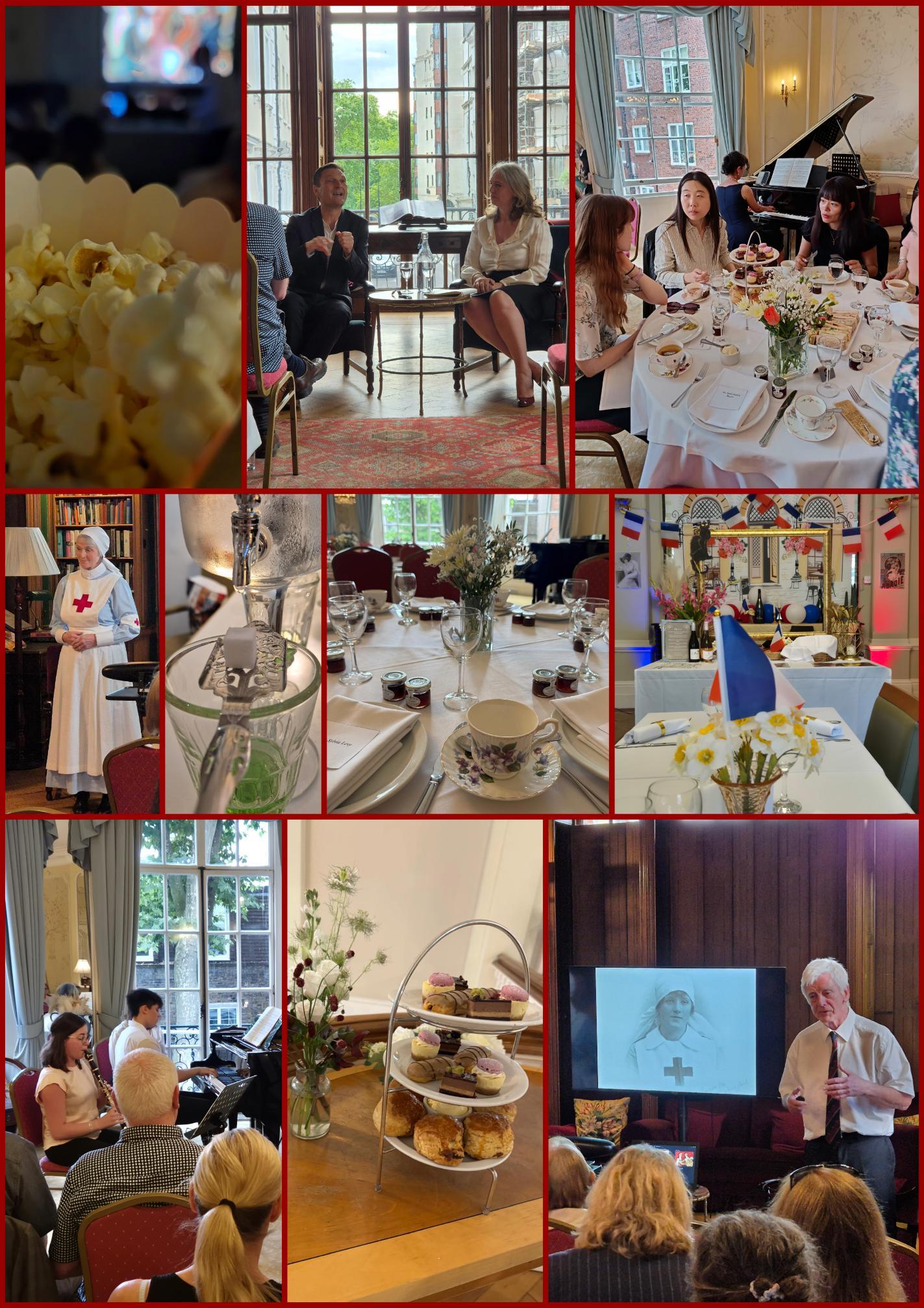
New planting at the UWC
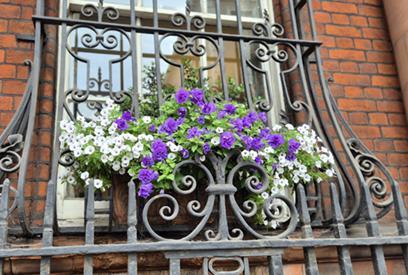

Over the last few months, we have been busy making some small but significant horticultural updates to the external environment around the Club. You may have noticed new planting in the window boxes at the front entrance, on the balconies at the back of the building, and the planters on the garden terrace.
When choosing a colour scheme, we focused on a palette which has been a long-standing motif of the club’s floral history; purple, white, and green, symbolising dignity, purity, and hope, respectively. Originally devised by Emmeline Pethick-Lawrence as part of the marketing campaigns for the British Suffragettes.
The window boxes and balcony planters contain a mix of evergreen structural topiary (Ilex crenata), evergreen trailing plants (the always resilient Hedera, various) which we have thankfully been able to reuse and colourful annuals (Petunia 'Tumbelina Compact Sophia' and Petunia 'Bubbles White'). The rear garden terrace furniture has had a few wonderful upgrades with the addition of new seat cushions to match the parasols and new glass tabletops. We decided to make the planting around the seating area soft and textural within the same purple, white and green palette. Look out for striking bulbs Agapanthus africanus, Agapanthus 'Windsor Grey', Agapanthus 'Twister' and the wonderful grass Stipa tenuissima 'Pony Tails'.
Corrine Frost
While the good weather lasts, why not enjoy an early autumn drink and sharing platter on the Terrace, and check out the new planting for yourself.
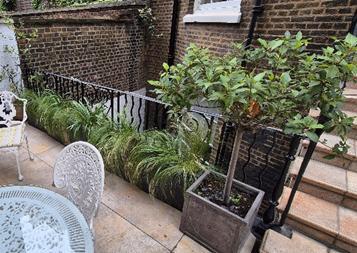
The Archive Transcription project gathers pace!
We are making good progress in transcribing entries from the first Candidates’Book, which records the election of candidates for membership from 1887 to 1909. Our volunteers find the work fascinating and have discovered so many remarkable women among our early Members.
One of these, the first name on the page below, was Dr Mary Scharlieb, whose long career in medicine is described overleaf.
New volunteers to join our team of transcribers are most welcome. The Victorian handwriting is initially a challenge, but gets easier to decipher with practice. If you would like to take part, please contact the General Manager (gm@uwc-london.com), or, if you would simply like to learn more about the project, please contact the Hon. Archivist at uwc_archivist@btinternet.com
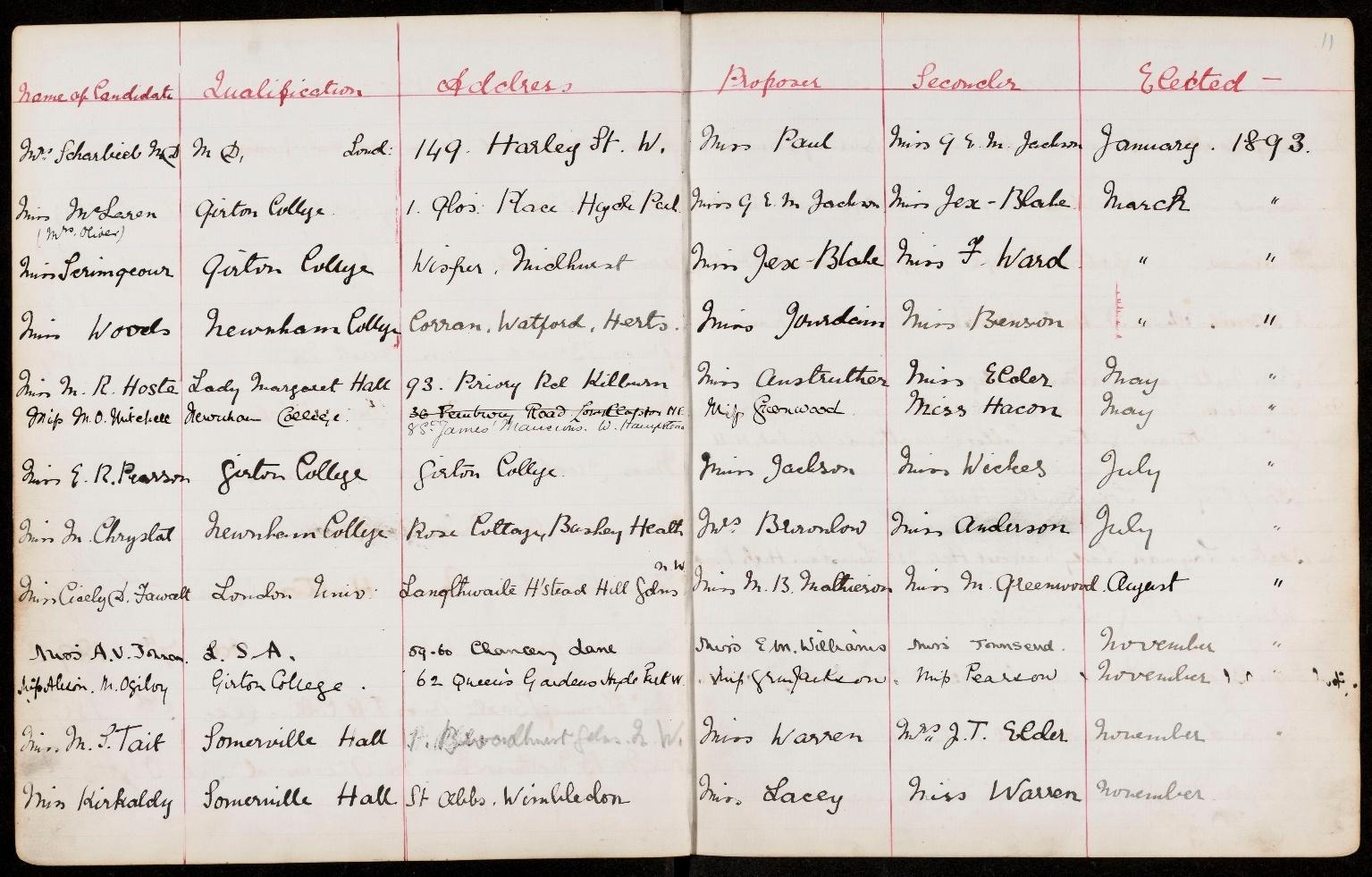
From the Archives: Dr Mary Scharlieb (1845-1930)
One of the notable early members of our Club was a pioneering physician and gynaecologist, Dr Mary Scharlieb. Born Mary Dacomb Bird, she was brought up by her Evangelical Christian grandparents after her mother died soon after her birth. After a conventional, middle-class education at various schools, at age 19 she met William Scharlieb, who was training to become a barrister, with his eyes set on Madras. They married in December 1865 and immediately sailed for India, which had only come under direct British rule seven years earlier.
After giving birth to three children, and gaining experience as a pupil midwife, in 1875 Mary was one of the first four women students to begin training at the Madras Medical College. Returning to England in 1878, she enrolled at Elizabeth Garrett Anderson’s newly established London School of Medicine for Women. After qualifying in 1882 she went to Vienna for a short period to gain more obstetric experience, but in 1883 she was back in Madras, teaching midwifery and gynaecology at the Medical College. She took her MD in London in 1888, working as surgeon at the Hospital for Women (later the Elizabeth Garrett Anderson Hospital) in Euston Road from 1887 to 1902.
It was during this period that she became a Member of the Club, proposed by a Miss Paul, seconded by Miss Gertrude Jackson, the Club’s founder. Her address at the time was, appropriately, 149 Harley Street. She had moved there in 1887 with her son, also a doctor by now, and would practise from there for forty years. Her husband died in 1891.
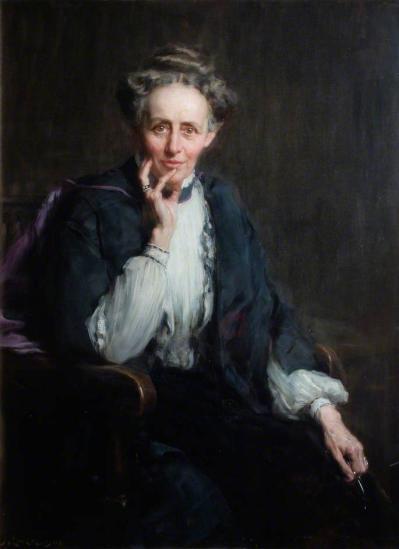
Mary gained her Master of Surgery degree in 1897, becoming the first woman in Britain to gain both MD and MS. She continued teaching and practising as a doctor until her late sixties, publishing a volume of her Reminiscences in 1924. For her services to her profession, she was made DBE in 1926 and two years later was awarded an honorary LLD by Edinburgh University.
After her death, aged 85, in 1930, the Royal Free Hospital, where she had lectured from 1887 to 1913, named a ward in her memory. Today, however, despite her achievements, she has been largely overshadowed by other pioneering women doctors of her generation.
Mary’s strong religious and moral convictions influenced her very negative views on divorce and on artificial contraception, and like many of her generation she was influenced by contemporary ideas of eugenics. Nonetheless, she was undoubtedly a feminist, believing strongly in the equality of the sexes, not least in medicine and in the legal sphere, and striving to improve medical care for women in India.
Library refurbishment update
With the Library works well underway, and we draw nearer to the reveal, we wanted to share some of the planning process with you.
Back at the end of 2024 when the House Committee was formed, we took on the urgent task of getting some of the armchairs reupholstered. Selecting the right colour for the fabric made it clear to us that we needed an overall design vision that we could refer back to, that would ensure a cohesive end result.
I went away and read the architect’s report the Club had commissioned from Thomas Ford & Partners in 2018. I also looked at the wealth of archival evidence we have on how the Library has evolved over time: the watercolour of Lady Flora in her drawing room, the 1921 sale catalogue of the clubhouse, the painting of the GC in 1937, and the photos of the GC during the 1980s. I also drew on my experience as an interior designer, as a member of the Club having attended both members’ events and private functions, and on my hospitality operations insights. In doing so, I proposed all our refurbishment choices be guided by the following principles:
• They are rooted in the Club’s history
• They honour existing features
• They are fit for purpose (for both staff and members)
• They are timeless, durable and economical
Whilst the first two points lead us aesthetically, the last two are the much more practical, but equally pertinent other side of the coin; if we pick something which is impractical for members to use or for staff to manage, something which is trendy or which is not hard wearing, it will likely need to be replaced sooner than otherwise, and hence not be economical.
From this basis, I proposed a colour palette that doesn’t break away from the existing one, whilst offering a gentle nod to what used to be. For example, where we recently have had emerald green on the walls, and a century ago we had light blue, I proposed something between the two.
We took advice from the conservation architect on what type of paint was needed and which paint companies offer the quality of paint needed for a heritage project. We ordered various sample pots, and had them painted on boards. Then, together with the Finance Committee and the General Committee, we stood in the library to review them next to the woodwork, next to the mirror, at the back of the room, next to the windows, at different times of day, in different weather, in natural light, and under artificial light. We also had multiple companies quote for prepping and painting the walls, all recommended by the conservation architect, to ensure we could pick the best quote without compromising on quality.
This process of research, proposal, samples, meeting suppliers, quotes, and review by multiple committees, has been guided at every stage by the principles initially set out, and has informed every decision we have made along the way: replacing the carpet, rewiring the room, upgrading the lighting, repairing the plasterwork, cleaning the woodwork, restoring the secret door, repairing the parquet, etc.
With any project such as this one, of a room beloved by so many, there is always a sense that we won’t be able to please everybody. Perhaps some members would have wanted the room to stay exactly the same, whilst others would have wanted bolder changes. But the restoration work could not be postponed indefinitely, and whenever we reached a difficult crossroad in this once-in-a-generation project, we asked ourselves whether members in 50 years’ time will think we had set them up for success. I very much believe we have.
Aliénor Cros
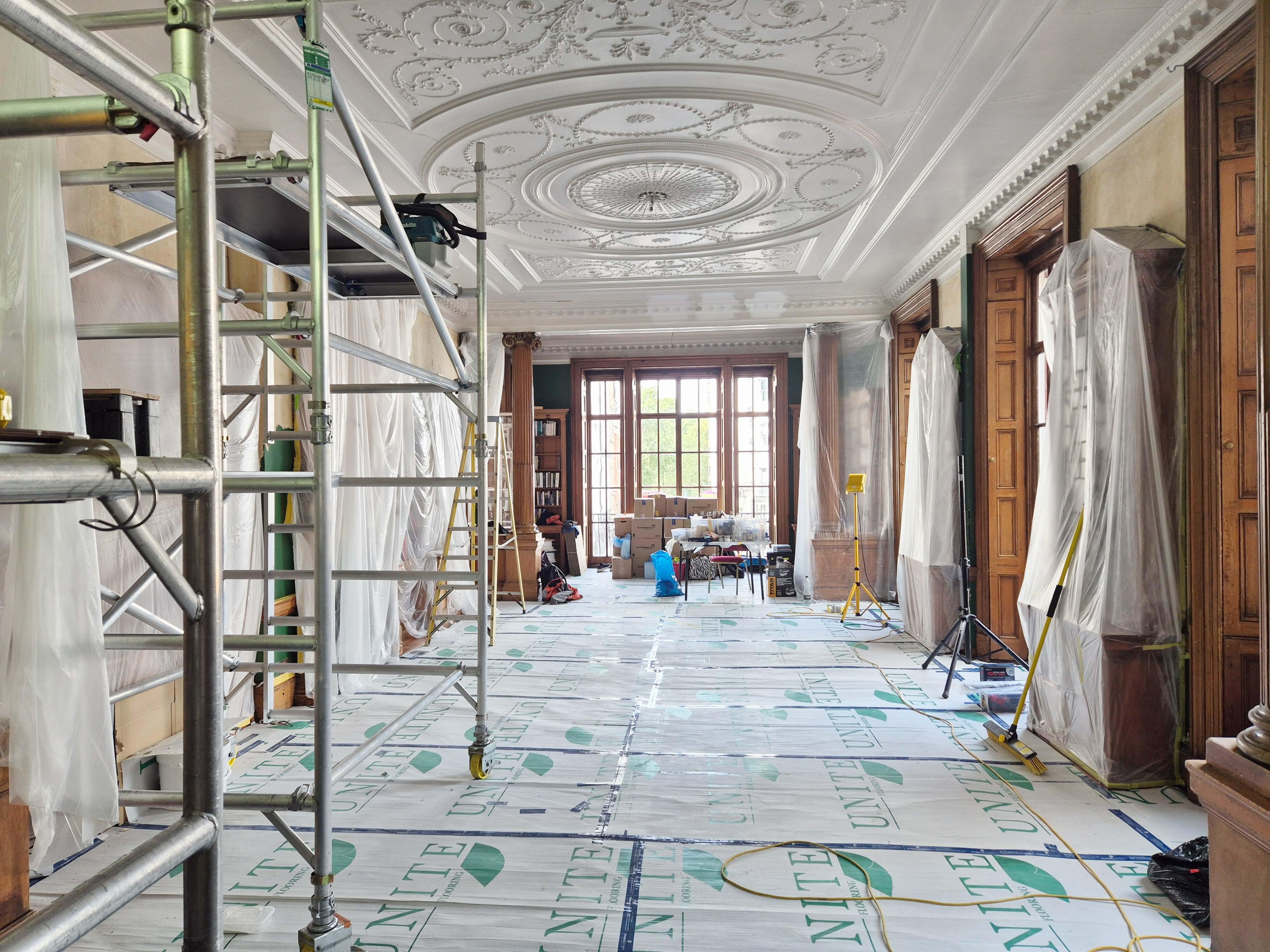
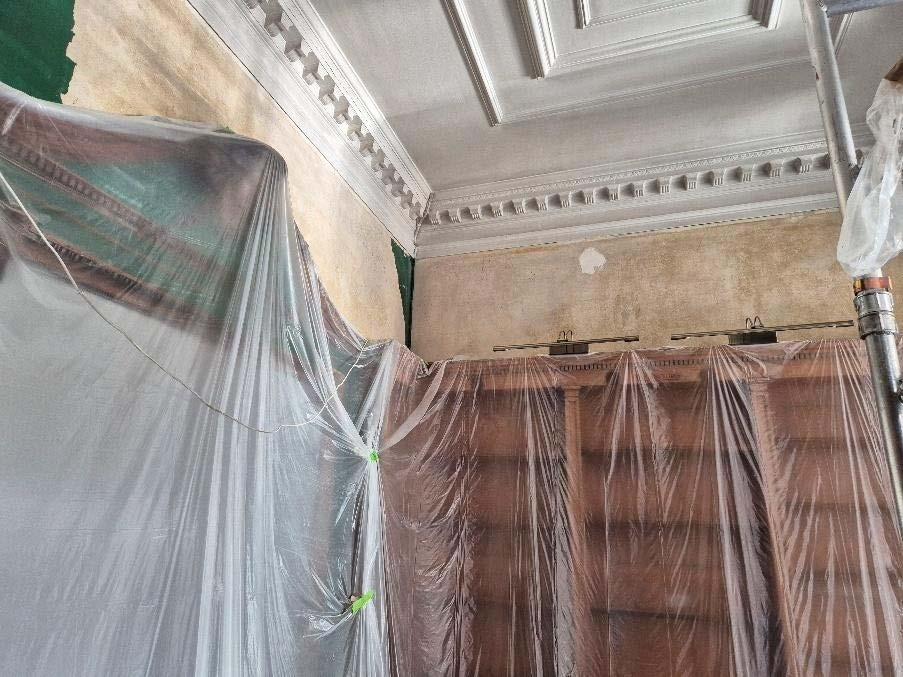
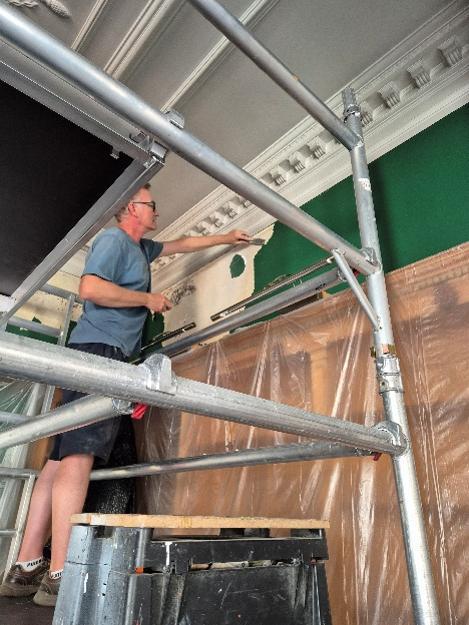
A Note from the Young Members’ Group
Warm greetings from the newly-formed Young Members’ Group! We were set up to maintain the special relevance of the University Women’s Club to its large and growing under-40 membership, and to ensure that it remains a vibrant and inclusive community for all.
Our main goal is to bring younger members together through a diverse calendar of events through the year, designed with the under-40s in mind, but always open to others who are young in spirit!
We will be planning events of various sizes and levels of formality, from monthly cocktail evenings to special balls where members who love an opportunity to dress up in costume will find an evening designed with that special fun in mind.
More prosaically, we will be exploring ways to build stronger connections with other London Clubs, through joint events held either at home in Audley Square, or at another club’s premises.
Importantly, we want to act as a conduit between the General Committee and the younger members. We are open to receiving feedback on their first-hand experience of the under40s membership, and any suggestions that they have on how this might be enhanced. These can all be reported upwards to the GC, and will help shape the Club’s future.
If you are a younger member, and have something you would like to contribute to the work of the group, please contact the General Manager in the first instance: gm@uwc-london.com
We very much look forward to hearing from you.
Raveena Asquith-Bhondi
Carole Robb returns to the UWC and honours members with a new gift of art.
Earlier this year, we were delighted to welcome back UWC Member and artist Carole Robb, whose generosity has once again enriched the Club’s collection, following her new exhibition Stato da Már.As part of the exhibition, a film featuring Carole in conversation with art historianAlexis Nanavaty was commissioned and recorded in our Dining Room, its peaceful setting enhanced by the breathtaking backdrop of The White Gondola, a diptych donated by Carole to the Club in 2018.The recording of the interview, dated May 7th, is available to view on the Noticeboard of the Members’Portal
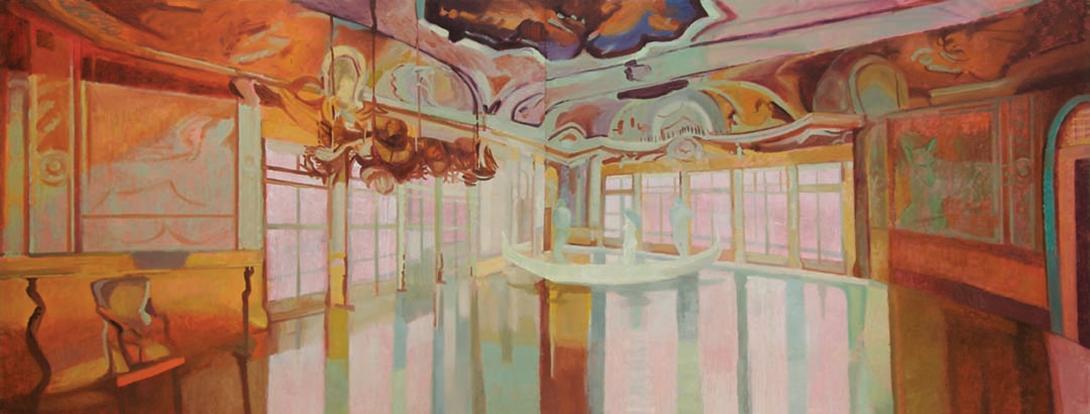
From her new exhibition, Carole has very kindly donated The View of the Giudecca from Giardino, a hauntingly beautiful scene of the famous Venetian canal. The painting was received on behalf of the Club by Ann Hallam, long-standing member and former Chairman of the GC, and now hangs proudly in the Dining Room.
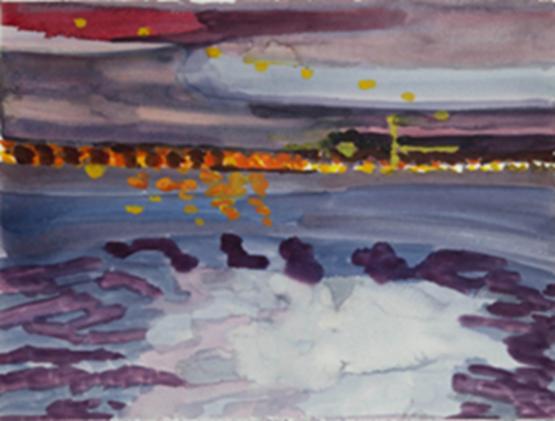
Carole Robb was born in Scotland. She studied painting at the Glasgow School of Art and the University of Reading (MFA). Major awards include the Rome Prize, and a Fulbright fellowship to the USA. Robb has worked in Rome, New York, Venice and London, with numerous solo shows in NYC. Her work is included in major Museums, including the Metropolitan Museum of Art, New York, the Imperial War Museum & the V&A She has taught at the New York Studio School, the Royal College of Art, the Camberwell School of Art and the Slade School of Fine Art. She is a member of the National Academy of New York, and is represented by Denise Bibro Gallery, NYC. Robb is RAP’s Artistic Director, and divides her time between New York and London.
UWC Marketing Committee update
The Committee was established in August 2024 with the following aims:
• To work with the Marketing & Engagement Executive to frame and implement a plan for UWC marketing goals, target audience, and specific measures.
• To set targets for increased membership, revenue, and member satisfaction.
• Tounderstandtarget audiencesofmembers,prospectivemembersandthewiderpublic(press, social media, other clubs, etc.) and tailor marketing efforts towards their various needs and interests.
• To review and update marketing materials, including the UWC website.
• To review social media & marketing data to guide communications strategies.
We are pleased to announce that even in this short space of time, we have made considerable progress. Notably, we have:
• Designed and produced a ‘Welcome Pack’ for new members
• Designed and produced pocketsize brochures to promote membership and external functions.
• Joined with the East India Club in distributing membership information leaflets to university and public-school leavers.
• Increased social media presence both internally and externally, resulting in growing visits.
• Designed and produced embossed Club information folders for bedrooms.
• Vastly improved our internal and external web pages, featuring promotions of Club offerings both past and future.
A new initiative currently underway is to promote the Club to University Alumni Departments and Women’s Groups with a view to increasing membership and number of external functions. Any input from members such as contacts at such organisations is welcome and should be forwarded to Victoria Gravenstede, the Marketing & Engagement Executive: marketing@uwc-london.com
The Committee continues to meet monthly under the leadership of Jane Oliver. Other UWC members currently serving on the Committee are Sarah Lavers, Anna Dé and Eleanor Meynell, alongside Alex Maitland and Victoria Gravenstede.
If you feel you could contribute to the work of the Committee, do get in touch with the General Manager (gm@uwc-london.com)

Recent visitors to the Club will have seen a few new items of merchandise at Reception, including pens, note pads and a tote bag.
If you would love to help the Club to grow but don’t have very much time, you can also help in small ways. For example…
The best publicity starts with you help us share the story.
To continue our legacy as a safe and welcoming haven for women, we need to keep growing as a community and that allcomes down to you, ourmembers, whose ongoing support and love make the Club what it is. It is your presence that gives the University Women’s Club its unique, diverse, and supportive spirit. To help share this with potential new members, we’d love to hear what inspired you to join the Club and why you continue to be part of it.
How will we use your words?
"I joined the University Women’s Club because I found myself on a park bench one day between music rehearsals, juggling a score, a pencil, a cup of coffee and a handbag, thinking, ‘Hang on, I am a professional… I should have a calm place to gather my thoughts!’ A visit to the Club solved the problem; it was love at first sight."
A UWC Member
How to share your story:
Please answer the questions below in whichever way suits you best:
Complete the form online via the following link (also available on the Members' Portal): Your Story
Email your answers to marketing@uwc-london.com
Post them to: University Women’s Club, 2 Audley Square, Mayfair, W1K 1DB
"I had never heard of this hidden gem of a Club in Mayfair but joined in 2016 as I was looking for somewhere to stay in London but actually found so much more”
Sarah, Finance & Investment Management
They will feature on our website to help potential new members connect with the Club as more than just a building, but a living community of women. We’ll also share them on our social media Instagram, Facebook, and LinkedIn. If you’d prefer, your contribution can remain anonymous, or we can include your first name and the industry you work in. It’s entirely your choice.
My favourite aspect of the club is …
“Engaging in social activities and events, learning so much from other members stories & careers, club mentoring opportunities and last but not least enjoying scones in the library in winter as well as a glass of something on the terrace in summer!”
Sarah, Finance & Investment Management
Questions:
Name and industry you work in (optional)
How long have you been a member of the UWC?
Why did you join the UWC?
What is your favourite aspect or story of the Club?
Word of mouth has always been our strongest link to future members and it’s you who make the Club as special as it is
Please do invite friends and colleagues to our next virtual Club Introductory Evening, or to the Open Evening, to discover more about the UWC and share with other potential members all that is great about it.
Wednesday Supper Club – new dining club at the UWC
Following the popularity of our Third Tuesday Lunch Club, the UWC Wednesday Supper Club offers a perfect evening option for members who may not be able to join us for lunch but still wish to enjoy great food, conversation and company.
Designed to be a relaxed, informal gathering, the Supper Club is a wonderful way to connect with fellow members – both familiar faces and those new to the Club – over a delicious meal prepared by Kathy and her talented kitchen team.
The format is simple and flexible: choose from the menu on the night – whether a one, two or threecourse meal, a fresh salad or one of our tempting sandwiches – and simply order and pay for what you have.

For those who can make it, we also meet for predinner drinks, making it an even lovelier opportunity to get to know other UWC members in a welcoming, social setting.
Members are also welcome to invite up to two guests, who do not need to be UWC members – a lovely way to introduce friends or family to the Club’s warm and welcoming atmosphere.
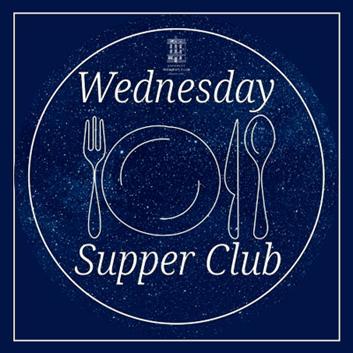
When: Last Wednesday of every month
Next Date: Wednesday, 24th Sept at 7.00pm
To sign up, simply register via the Members’ Portal or contact Reception.
For more information or to join the Wednesday Supper Club WhatsApp group, please get in touch with Anna Dé
anna@anna-de.com
UWC Concert Series: An overview from 2025
Nothing makes a house feel more like a home than hearing music wafting around the building. One of our UWC members said her eyes light up when she hears the notes of our Drawing Room piano filling the stairwell.
Members who come along regularly to our concerts will be familiar with the format: a true musical soirée in the old-fashioned sense. We begin the evening in the Library with an invited special guest speaker who is an expert on the music to be performed that evening. After a talk of around 30 minutes, plus questions from the audience, we adjourn to the Drawing Room for an hour of music, introduced by the performers themselves Afterwards, we have supper in the Dining Room, giving everyone the opportunity to mingle and get to know each other.
We hold four concerts a year and this year we kicked-off with an absolutely gorgeous song recital by a young Irish soprano Anna Gregg who stood in at the very last minute for A Female Lens: A celebration of women in music. She sang an exquisite programme of songs from her native Ireland. Professor Nicola LeFanu, an eminent composer and daughter of composer Elizabeth Maconchy, spoke eloquently about the challenges and ups and downs of working as a professional female composer during the past 50 years.
April’s concert was ‘Haydn in London’ in which I also played joined by my old friends from Chethams School of Music, Tom Roff and Clara Biss. Our guest speaker was Professor Jennifer Sheppard from the Royal Academy of Music. In July we hosted The Birce Kayhan Trio from The Purcell School, just as they were all about to fly the nest to tertiary education at the Guildhall School of Music or Cambridge University. The fascinating guest speaker was Director of Music at the Purcell School, Paul Hoskins It was an honour to have him there and there were some lively and interesting questions from the floor about what it is like growing up in a specialist music school environment.
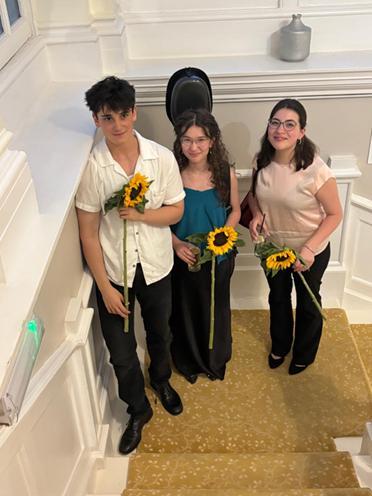
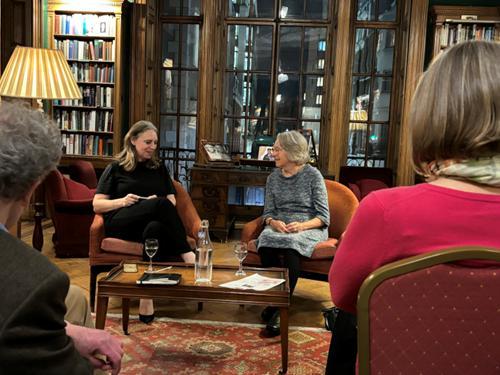
Birce Kayhan Clarinet Trio
Nicola LeFanu with Eleanor Meynell
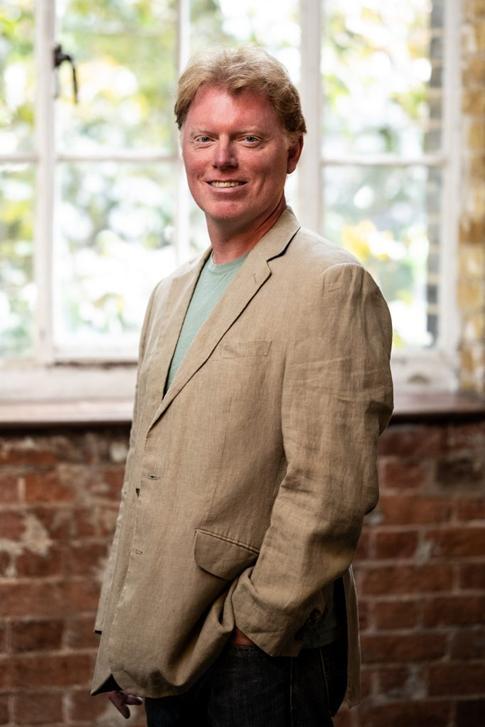
There is one more concert for 2025. On October 9th , ahead of his upcoming Wigmore Hall recital, we host pianist Timothy Horton for an evening entitled: ‘Chopin - The Poet of the Piano’ Due the re-furbishing works going on in the Library, we won’t be having a guest speaker this time, but Tim will be introducing each piece in the programme.
The UWC concerts are special, high-quality professional events, tailored made and hand-picked from the best in the business It is a privilege to be able to mine my experience and contacts to put on something unique for the entirely suitable surroundings.
If you haven’t yet come along, the concerts are a balm for the soul and an opportunity to be transported away from the hubbub of the noisy commercial concert hall to the beauty and tranquility of our musical soirées.
Eleanor Meynell.
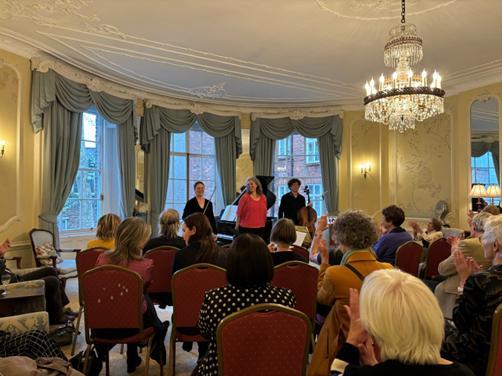
Timothy Horton
Meynell Piano Trio
Kindred Foundations: Sweet Briar and the Transatlantic Fellowship of Women’s Education
The genesis of Sweet Briar College, Virginia, is stitched not from triumphant beginnings alone, but from a mother’s primal grief delicately reimagined as legacy. In the wake of her only daughter Daisy’s untimely death, Indiana Fletcher Williams chose not to retreat into mourning but to sow the seeds of a radical future.
Where once the fields of her Virginian estate spoke only of heritage and loss, she envisioned instead a sanctuary for intellectual cultivation a women’s college that would marry pastoral serenity with academic ambition. Thus, in 1901, Sweet Briar was born, unshackled from the traditional moulds of American higher education, and suffused with a quiet, unorthodox strength.
Its standing among the University Women’s Club’s reciprocal associations speaks not merely to transatlantic courtesy, but to a deeper consonance of ideals. Like the first women’s halls at Oxbridge Girton, Somerville, Newnham Sweet Briar was an act of educational defiance, shaped against the grain of its time. But whereas its British counterparts were hewn from centuries-old stone, carved slowly and with resistance into the structures of male academies, Sweet Briar emerged whole, unbothered by the weight of inherited exclusion. Its foundation was neither compromise nor concession it was conceived, from its red clay roots, wholly for women.
Oxford murmurs medieval mysteries beneath its dreaming spires, and Cambridge cradles its intellectual lineage behind ivy-clad gates. Yet Sweet Briar’s voice rings with clarity, conviction, and an unmistakable Southern grace: this place was built for women from the ground up. Its mission was not retrofitted to accommodate them it was theirs from the first stone, the first syllabus, the first breath.
In its affiliation with the University Women’s Club, a quiet harmony emerges: rural meets metropolitan, Southern soil speaks to Mayfair air, and a shared tradition of female scholarly determination resounds across the Atlantic. These institutions, on separate continents yet singular in spirit, remind us that to educate a woman is not only to honour history, but to make it anew. Elizabeth Gilkey
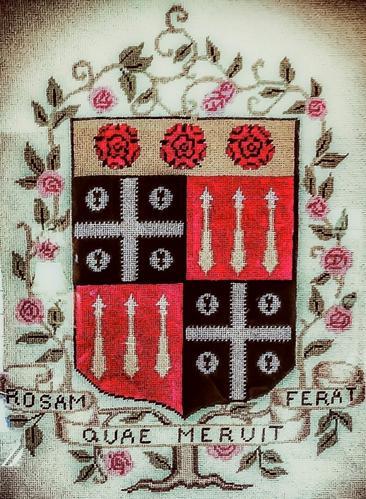
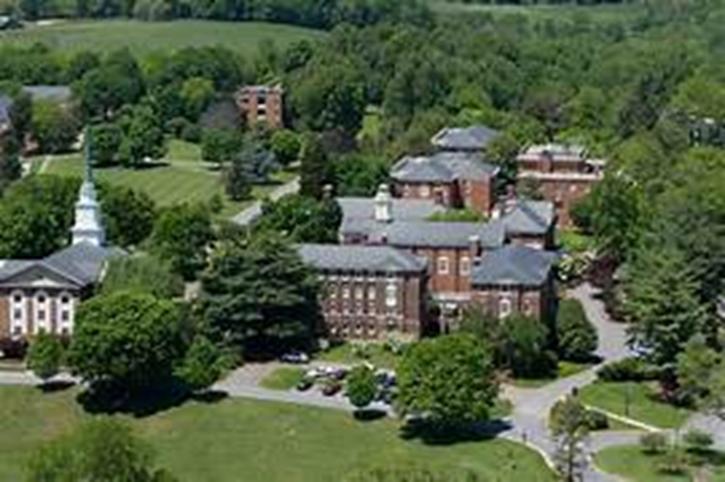
Some upcoming events for your diary.
Thursday 23rd October UWC Tasting Event: No Proof, Just Bubbles
Historically, those wishing to enjoy a booze-free evening while socialising have had little choice when it comes to elegant beverages. Discerning palates were often left with only sugary drinks or plain water. However, with increasing consumer demand for alternatives, there has been a definitive shift, and the selection of interesting and complex low- and no-alcohol options has expanded significantly. We are delighted to be collaborating with the UWC Wine Club in welcoming representatives from two exceptional producers Bolle and Saicho. With the festive season fast approaching, members seeking alternatives to the usual celebratory drinks are warmly invited to join us in exploring the world of zeroproof fizz.

Wednesday 12th November UWC Library Talk: Women and Winemaking
The vintner is typically imagined as a man, but since antiquity women have also played a role in winemaking. From Ancient Greece through the Etruscans of Central Italy and into the Roman Empire, women were central to the rituals of viniculture. Their legacy endures today, as female winemakers reclaim their place in this long and distinguished tradition. Join us on November 12th to learn more about this rich history and the expertise of the women who, for thousands of years, have shaped the story of wine.
We are always delighted when our own members share their expertise with us, and in this library talk we are especially privileged to have UWC member and London-based archaeologist Elizabeth Gilkey and award-winning winemaker Charlotte Horton recount the history of women and wine making. Charlotte has been producing acclaimed wines in Tuscany for over 20 years, while restoring two castles and, at her home Castello di Potentino bringing an abandoned estate back to life, with new vineyards and olive groves, as a cultural centre and bed & breakfast.
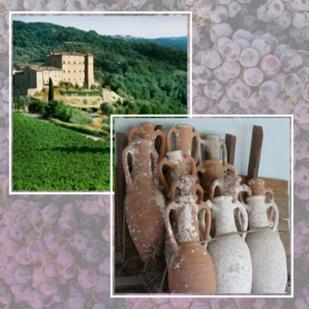
Tuesday 25th November UWC Library Talk: The Lost Girls of Autism
We are delighted to welcome back welcome back renowned brain scientist Professor Gina Rippon. In 2022 Professor Rippon delivered a hugely popular series of Library Talks, exploring the concept of the “gendered brain”. Recordings of these sessions are available on the Members’ Portal for those who missed them.
Now, she returns with insights from her latest publication, The Lost Girls of Autism, in which she investigates the emerging science of female autism, asking why it has been overlooked for so long. Professor Rippon reveals how entrenched beliefs in the “maleness” of autism have left countless women on the spectrum unrecognised and unsupported ignored by clinicians, misdiagnosed for decades, and excluded from vital research. Her talk will not only highlight these hidden stories but also provide an update on our evolving understanding of autism and what it truly means to be autistic.
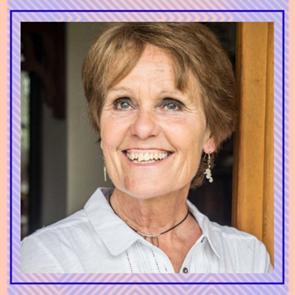
Friday 12th December Christmas at the UWC

The single most popular event of the year, the UWC Christmas, is an occasion of jollity and celebration, where our members gather to eat, drink, and be merry every moment designed to delight the senses. December 12th will be filled with festive music, yuletide trivia, and gastronomic delights, all wrapped up in a cosy package of warmth, wit, and seasonal sparkle a festive reminder of what makes the UWC our home away from home. Join us for either Lunch or Dinner and everything in between!!
Friday 23rd January Burns Night 2026
For those of us brought up north of the border, a good Burns Supper was always a much-anticipated treat. And when it brought with it an opportunity to put to good use all those jigs and reels we were forced to learn at school well, joy knew no bounds! For those reminiscing about the long, dark winter nights enlivened by the skirl of the pipes, the patterned blur of tartan, and the rousing verses of the great bard himself, Burns Night at the UWC will not disappoint! Come along on Friday January 23rd to savour the delights of a traditional Burns Supper haggis and all and round off the evening with a rousing performance of the Gay Gordons or a Dashing White Sergeant. An absolute must!

UWC Book Club
Thursday 18th
September
Sword of Honour
by Evelyn Waugh
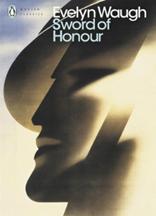
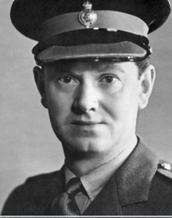
Marvellous…one of the masterpieces of the century – John Banville, Irish Times
October – December 2025
Just before his death, Waugh extensively revised his war trilogy (Men At Arms, Officers and Gentlemen, Unconditional Surrender) and published them in 1965 as one volume, Sword of Honour, the form in which Waugh himself wished them to be read. Largely based on his own experiences as an army officer in WW2, Sword of Honour was the crowning achievement of Waugh’s writing career, perfectly capturing the bureaucracy, pettiness, absurdity, humour, and confusion of war. The semi-autobiographical protagonist is Guy Crouchback, heir of an ancient but decaying Catholic family. He is in his late thirties when the novel opens, divorced and living alone. On the outbreak of war Guy joins the Royal Corps of Halberdiers and his adventures – and misadventures – take him to Scotland, Africa, Crete, and Yugoslavia, where he finds himself mostly on the periphery of events. In Crete, for example, much of Guy’s time is spent simply trying to find the front lines, while his superior officer makes a run for the beach. Though often sombre, Sword of Honour is also a brilliant comedy, filled with laughout-loud moments and peopled by the fantastic figures so familiar from Waugh's early satires. In short, Sword of Honour is everything that great literature should be - beautifully written, evocative, poignant, funny, tragic and profound. For many, it is one of the finest pieces of narrative writing in the 20th century.
Thursday, 16th October Wide Sargasso Sea by Jean Rhys
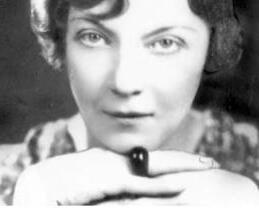
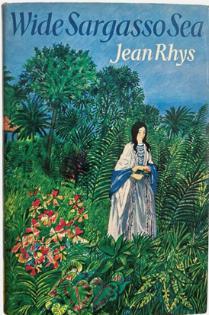
She took one of the works of genius of the 19th century and turned it inside-out to create one of the works of genius of the 20th century – The Times
Wide Sargasso Sea was Jean Rhys’s last and best-selling novel. It was published in 1966 when she was 76, living in great poverty in Devon, and had almost given up hope of further literary recognition. Known for her extraordinary prose and haunting female characters, Rhys focuses here on perhaps fiction’s most haunting female character: the mad woman in the attic of Thornfield Hall in Charlotte Brontë’s Jane Eyre. Rhys, the daughter of a Welsh physician, who was born and brought up on the Caribbean island of Dominica, portrays the mad woman as a white Creole heiress named Antoinette Cosway. Antoinette’s mental state is already fragile after growing up in the oppressive colonialist society of Jamaica in the 1830s and it is compounded by being sold by her family into a loveless marriage with a ruthless young Englishman who marries her for her wealth and beauty. Although he is never named, it is clear that the Englishman is Mr Rochester who now calls his wife Bertha and takes her to England, where he further increases her mental instability by keeping her in solitary confinement and locked away from the world.
The great strength of Wide Sargasso Sea is in giving this marginalised character a voice. As Rhys herself said, ‘She seemed such a poor ghost. I thought I’d like to write her a life.’ In doing so, this work which has been variously described as a classic study of betrayal, a post-colonial novel and an important feminist work, became her masterpiece.
Thursday, 20th November
A Month in the Country
by J. L. Carr

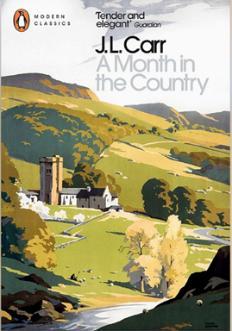
Unlike anything else in modern English Literature – D.J. Taylor, Spectator
This poetic novel –just over a hundred pages – is narrated by Tom Birkin, who reflects on a summer he spent in the Yorkshire village of Oxgodby in 1920, when he was a young survivor of the First World War. Suffering from the physical and mental injuries he received at Passchendaele, and painfully coming to terms with his wife’s desertion, he accepts a job restoring a medieval mural in the village church. The marvellous thing was coming into this haven of calm water and, for a season, not having to worry my head with anything but uncovering their wall-painting for them… This is what I need, I thought – a new start and, afterwards, maybe I won’t be a casualty anymore. What follows is a tender, introspective story which examines the human spirit’s capacity for resilience and the enduring power of art to heal. Immersed in the peace and beauty of the countryside and the unchanging rhythms of village life, he experiences a sense of renewal and belief in the future. ‘All this happened so long ago,’ Birkin says at the end of the novel, ‘and I never returned.’ There is deep sadness at the irrevocability of his loss, but in leaving he also preserved the memory –‘it stays as I left it’ – which will never lose the beauty of its unfulfilled promise.
Thursday, 18th December
Persuasion
by Jane Austen
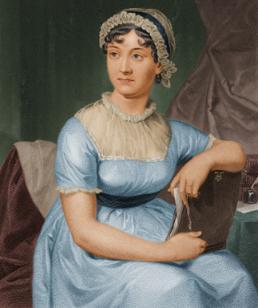
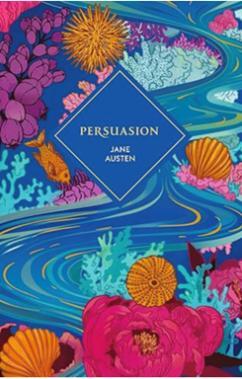
In Persuasion, Jane Austen is beginning to discover that the world is larger, more mysterious, and more romantic than she had supposed –Virginia Woolf
For further information about the Book Club, contact Jeanne Langley: bookclub@uwc-london.com
Commemorating the 250th anniversary of Jane Austen’s birth, the Book Club will be reading Persuasion. Often described as autumnal in tone, Persuasion is Austen’s mature and moving novel of missed opportunities and second chances.
The story centres on Anne Elliot who, at 27, is considered no longer young and, with no romantic prospects, seems destined for spinsterhood. Eight years earlier, she broke off an engagement to the handsome, but penniless, naval captain, Frederick Wentworth, at the insistence of her friend, Lady Russell, who did not find him socially acceptable. But when Wentworth returns rich and famous from the Napoleonic wars, Anne finds her affection rekindled – even though Wentworth now seems more interested in her friend.
Set in the fashionable locations of Lyme Regis and Bath, Persuasion explores themes of love and loss, regret, pride and ambition. It is imbued with a deep love of the navy which symbolises a new worldview – the possibility of a more outgoing, engaged, and fulfilling life. And as one would expect from a Jane Austen novel, love eventually conquers all, with the result that Anne and Wentworth are in the end reconciled.
Persuasion was the last novel completed by Austen. It was written in a race against her failing health and published by her brother, Henry in 1817, six months after her death. Until then Austen’s books had been published anonymously but Henry used the publication of Persuasion to reveal her identity. Jane Austen soon became acknowledged as one of the most distinguished writers in English literature.
Film Club Programme, October – December 2025
The discussions take place on Zoom, every second Tuesday in the month, 7.00pm, London time.
(Overseas members: If the time difference permits, do join us!)
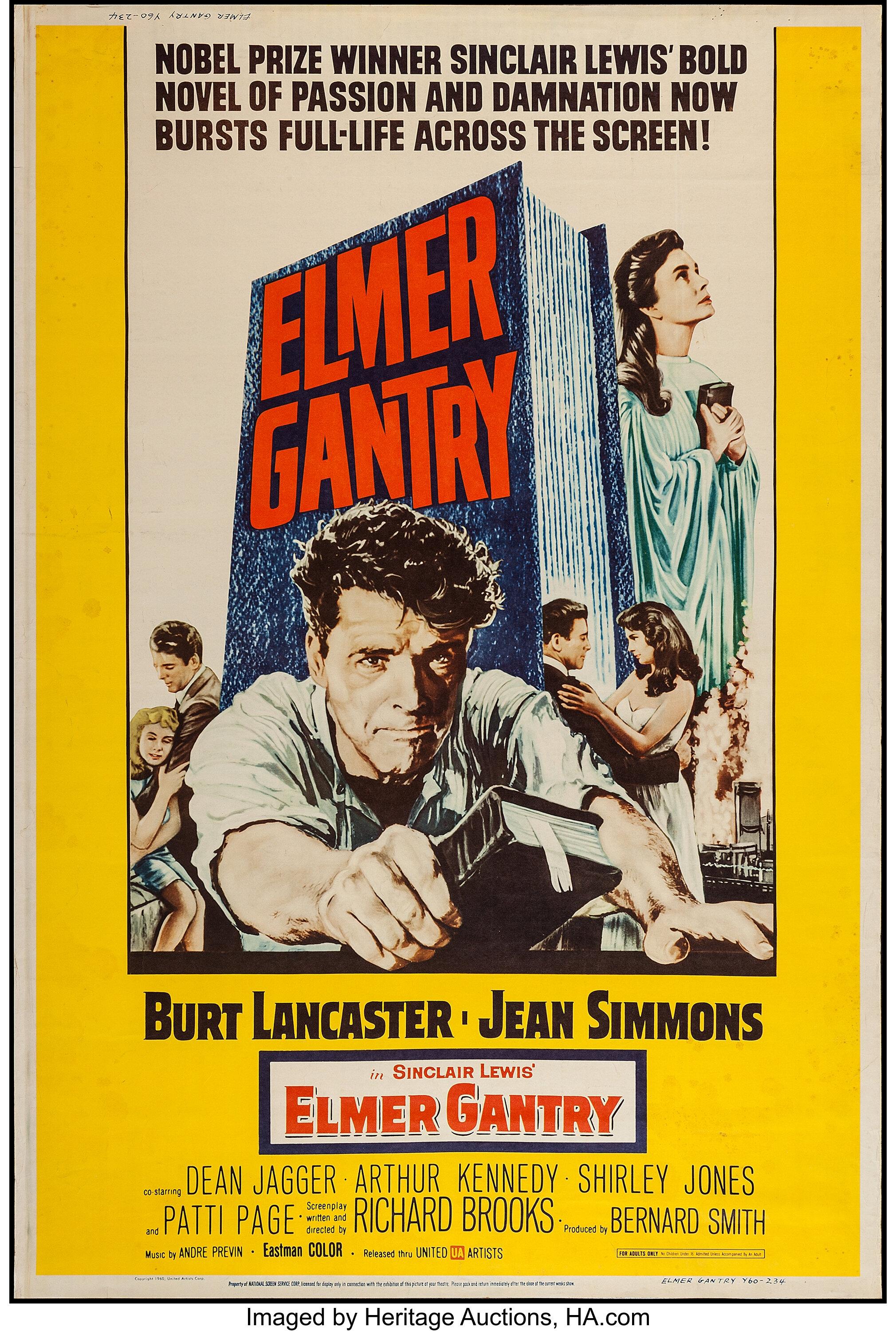
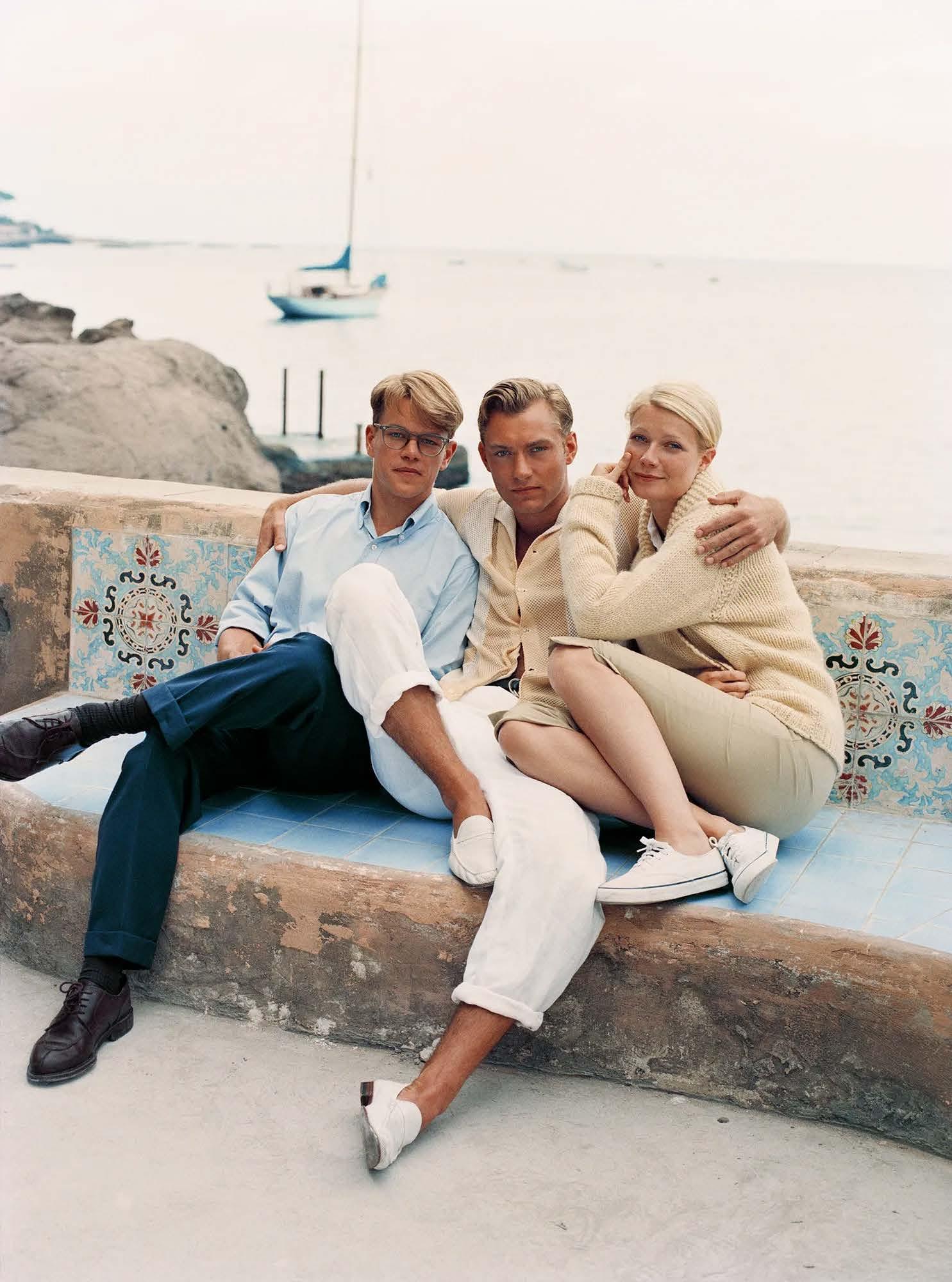
Tuesday, October 14th
Elmer Gantry (1960) Directed by Richard Brooks
Loosely based on a 1927 Sinclair Lewis novel, the film is a study of monstrous hypocrisy in which a smooth-talking conman teams up with a fervent evangelist to sell salvation to God-fearing folk in small town America. The soundtrack was composed and conducted by André Previn, and includes a striking rendition of the traditional hymn ‘I’m On My Way’, sung by Burt Lancaster himself with an acapella Black church choir. The scene beautifully captures Elmer Gantry winning over the congregation with his apparent Christian faith while planning to cheat them of their money. Lancaster won an Oscar for Best Actor, and Jean Simmons a Golden Globe for Best Actress
Tuesday, November 11th
The Talented Mr Ripley (1999) Directed by Anthony Minghella
The film is an adaptation of Patricia Highsmith’s 1955 novel about a man who covets, not merely another man’s wealth, but another man’s whole identity. As the plot unfolds, and Mr Ripley insinuates himself more and more into Dickie Greenleaf’s social circle, he has to draw on his outstanding ability lie his way out of difficulties. And because he is so skilful, and the people he is lying to are not especially likeable, the audience is drawn into rooting for the liar. We want him to get away with it.
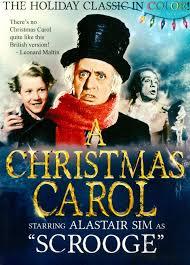
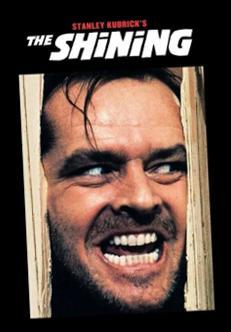
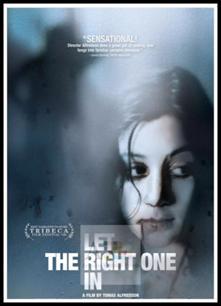
For further information about the Film Club, contact Pauline Foster at pauline.foster.uk@gmail.com
Tuesday, 9th December
Scrooge (1951)
Directed by Brian Desmond Hurst
Widely regarded as the best screen adaptation of Dickens’ A Christmas Carol, the film showcases a wealth of post-war British acting talent, including George Cole, Michael Hordern, and of course Alistair Sim giving his quintessential portrayal of a doomed then redeemed miser. The film brings the plight of the poor in Victorian London visually to the fore. When the Ghost of Christmas Present shows Scrooge a starving boy and girl named ‘Ignorance’ and ‘Want’, they are startingly depicted as dangerous, a warning to society to take better care of its destitute children.
Friday, October 31st Halloween


A double-feature film programme for Fright Night



We will be screening two classic horror films in the Drawing Room The Shining (1980) dir. Stanley Kubrick, Let The Right One In (2009) dir. Tomas Alfredson.
Dinner will be served during the intermission.
UWC Reading Group, Autumn 2025
The organisation of the Reading Group is loose and informal. Meetings are hybrid, meaning you can attend at the Club, or join online from wherever in the world you find yourself. If you register for a meeting, you are not signing up to come regularly; you can choose to join in when the title under discussion is interesting to you.
In addition, there is no expectation you will have read the text, or formed an opinion on it. If you are happy just to listen to others, that’s fine. If you have read it and have formed an opinion, you will be welcome to share it with the group. The aim is to inform ourselves and explore together the many different fiction and non-fiction writing genres available today
Among the genres we have recently considered are poetry, drama, short story, novella, biography, history, science fiction, and graphic novel. Coming up this autumn are four more: magical realism, family memoir, historical fiction, and a collection of essays
All meetings start at 7.00 pm. We aim finish in time for those at the Club to go down for last orders in the Dining Room.
Tuesday, Sept 23rd: Magical Realism
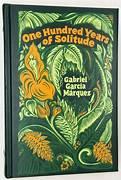
One Hundred Years of Solitude follows seven generations of the Buendía family in the fictional Colombian town of Macondo. By seamlessly mixing a recognizable nineteenth century world with one infused by the supernatural, García Màrquez conjures an allegorical history of colonial Latin American to create one of the 20th century’s most influential works in Spanish, at the same time establishing the genre known as magical realism García Màrquez won the Nobel Prize for literature in 1982.
If you have never tried Magical Realism, or never heard of it, this book might be the ideal introduction to new reading choices.
Wednesday, Oct 22nd: Family memoir
Edmund De Waal greatly admired his uncle Iggy’s collection of 264 Japanese ‘netsuke’ carvings in ivory and wood. After inheriting them, he was prompted to explore how the collection arose, uncovering the extraordinary story of the Ephrussi family, from 19th century grain merchants in Russia to fabulously wealthy bankers in Vienna, then on through 20th century persecution, confiscation and exile. The netsuke are miraculous survivors of the extensive art collection in the Ephrussi Palace.
Not all families have an epic tale to tell, or a gifted writer to tell it, but The Hare with Amber Eyes combines both elements. If you never read family memoires, give this one a try.
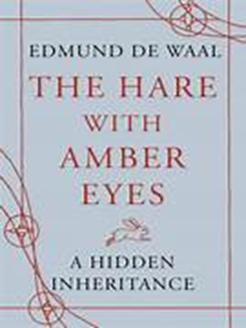
Wednesday, Nov 19th : Historical Fiction
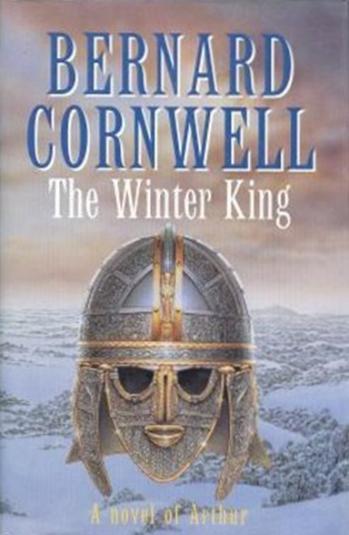
In post-Roman Britain, a chieftain called Arthur fights against the invading Germanic tribes The main characters in The Winter King (Merlin, Lancelot, Guinevere, Mordred, Gawain) are recognisable from Arthurian legend, but Cornwell creates them as notably un-heroic personalities in a world of pagan superstitions and fragile political alliances. The result is an Arthurian story that is oddly more plausible than the legends that have come down to us Cornwell excels in imagining how the myths we inherit are spun from the actions of cowardly, worthless, self-serving people.
Historical Fiction is a very popular genre, but is often preposterously unserious. There are some good writers however, and Cornwell is one to try.
Wednesday, December 10th: Essay Collection.
Susan Sontag was photographed by her partner Annie Leibowitz, laid out after death; a Victorian tradition. Sontag is beautiful in monochrome, with her trademark streak of white hair. Leibowitz, a celebrity photographer and portraitist of celebrities., has, like Sontag, huge personal glamour and reputation. Their times propelled them to cultivate rock star public personae. Leibowitz shot the A list; Sontag’s book On Photography (1978), winner of the National Book Critics Circle Award, caused a sensation while attacking the reputations of many honoured photographers, living and dead. According to photographer Graeme William, On Photography explores the ethics of seeing, not the aesthetics. Looking at (and making) photographs is a defence against anxiety, which can lead to a voyeuristic relationship with the world and anaesthetise us to its miseries. Taking those funerary pictures may jar with the hostility to photography evident in this book (much of which, of course, Sontag rowed back on). Or it makes a postdated peace, while acknowledging the continuing debate.
Now that everyone with a phone can take pictures and video anywhere of pretty much anyone, with minimum effort and maximum broadcast potential, was Sontag prescient about photography making us all unfeeling voyeurs?
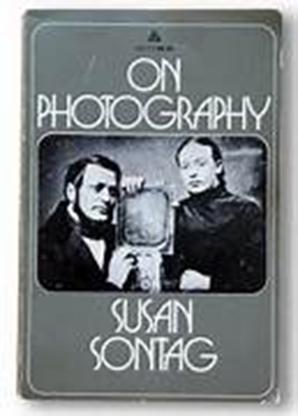
Endnotes
Planning a private party?
There are many occasions in life that call for a special celebration: an engagement, a wedding, an anniversary or a significant birthday. There are also times when you might like to host a dinner party for more friends than you can fit round your own table.
This is where membership of the Club comes in especially handy. From your second year, you have the annual opportunity of reserving either the Library or the Drawing Room (or both) for a private party, without paying the usual room hire charge.
If any of these special occasions is coming up in your calendar, do contact Lukasz and start exploring the possibilities (events@uwc-london.com). He can help you select the food, the drinks, the music and how you’d like the room decorated.
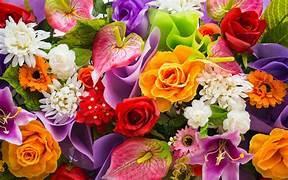


Saying a final goodbye
We note with sadness that five of our longest-serving members have passed away this year. Their length of membership adds up to an extraordinary 196 years. Joan Wheeler-Bennett joined in 1974, Susan Mitchell in 1979, Marilynne Morgan in 1980, Dorothy Roake in 1993 and Isabella Phillips in 1999. We acknowledge their long and faithful association with the UWC, and wonder at many changes they saw in those years as the Club moved towards its modern incarnation.



If there is anything you would like to see included in the next issue of the UWC Magazine, please contact the editor: pauline.foster.uk@gmail.com
